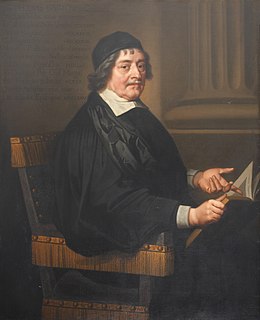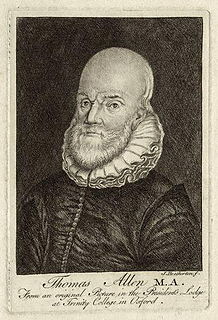Life
He was son of George Lamphire, apothecary, and was born in Winchester. He was admitted scholar of Winchester College in 1627. He matriculated from New College, Oxford in 1634, aged 20; was elected fellow there in 1636; proceeded B. A. in 1638, and M.A. in 1641-2. He is apparently the John Lanfire who was appointed prebendary of Bath and Wells in 1641.

Winchester is a city and the county town of Hampshire, England. The city lies at the heart of the wider City of Winchester, a local government district, and is located at the western end of the South Downs National Park, along the course of the River Itchen. It is situated 60 miles (97 km) south-west of London and 13.6 miles (21.9 km) from Southampton, its closest city. At the time of the 2011 Census, Winchester had a population of 45,184. The wider City of Winchester district which includes towns such as Alresford and Bishop's Waltham has a population of 116,800.

Winchester College is an independent boarding school for boys in the British public school tradition, situated in Winchester, Hampshire. It has existed in its present location for over 600 years. It is the oldest of the original seven English public schools defined by the Clarendon Commission and regulated by the Public Schools Act 1868.

New College is one of the constituent colleges of the University of Oxford in the United Kingdom. Founded in 1379 by William of Wykeham, the full name of the college is St Mary's College of Winchester in Oxford. The name "New College", however, soon came to be used following its completion in 1386 to distinguish it from the older existing college of St. Mary, now known as Oriel College.
In 1648 he was ejected from his fellowship by the parliamentary visitors, but during the Commonwealth practised physic with some success at Oxford. Anthony à Wood in his 'Autobiography' says he belonged to a set of royalists "who esteemed themselves virtuosi or wits". He was Wood's physician, and tried to cure his deafness.
The parliamentary visitation of the University of Oxford was a political and religious purge taking place from 1647, for a number of years. Many Masters and Fellows of Colleges lost their positions.
Lamphire was restored to his fellowship in 1660, and on 16 August was elected Camden professor of history. On 30 October 1660 he was created M.D. On 8 Sept. 1662 he succeeded Christopher Rogers (deprived) as principal of New Inn Hall, and on 30 May 1668 was translated to the headship of Hart Hall. He was also a justice of the peace for the city and county of Oxford, and seems to have taken some part in civic affairs, particularly in the paving of St. Clement's and the draining of the town moat. He died on 30 March 1688. aged 76, and was buried on 2 April in the chapel of Hart Hall (now Hertford College), near the west door. Walker calls him "a good, generous, and fatherly man, of a public spirit, and free from the modish hypocrisy of the age he lived in".
New Inn Hall was one of the earliest medieval Halls of the University of Oxford. It was located in New Inn Hall Street, Oxford.







